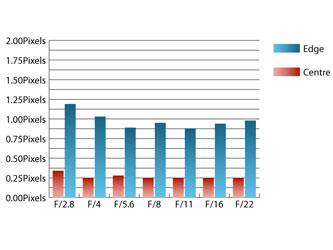photo:canonef16-35mml
Table of Contents
Canon EF 16-35mm pro lenses
see also:
introduction
- the very average image quality Canon EF 16-35mm f/2.8L version II was introduced in 2007 this has been updated in Dec 2016 with a mark III version which is sharper wide open at 16mm and with less CA and the 9 blades give much better sunstars but otherwise fairly similar at other focal lengths
- compared to the 16-135mm f/2.8L II lens, the newer Canon EF 16-35mm f/4 L IS is:
- sharper edge-to-edge
- less expensive
- adds image image stabiliser so you can shoot at hand-held at 1/2 to 1/4 second
specs
Canon EF 16-35mm f/2.8L III USM
- announced Dec 2016
- Fully weather-sealed construction
- Sub-wavelength Coatings (SWC) and Air Sphere Coatings (ASC) to eliminate lens flare and ghosting
- Two large-diameter double-surface GMo lenses plus a ground aspherical lens to help decrease distortion, curvature of field and astigmatism
- Two UD lenses help to reduce chromatic aberration
- 9 rounded blades not 7
- 790g (up from 635g in mark II)
- 128 x 89mm
- EW-88D lens hood
- $US2199
reviews
-
- sharpness wide open highest at 16mm (much better than mark II) but 2.6EV vignetting in corners and 2.7% x 0.9% barrel distortion, but lateral CA well controlled and much better than the version II lens
- at 28-35mm need f/5.6 for maximal sharpness and at these focal lengths, the distortion is pincushion, and the sharpness is only minimally better that the mark II lens
- distortion similar to mark II lens but simple and easily correctable
Canon EF 16-35mm f/4L
- announced 2014
- “by far the best ever from Canon for nature, landscape, interior, real estate, general architecture and outdoor photography” 1)
- 16-35mm zoom
- f/4-f/22
- weathersealed
- 4EV image stabiliser
- close focus to 28cm
- 9 curved blades
- 16 elements / 12 groups
- flourine coatings
- 77mm filter
- 112.8 x 82.8 mm
- 617 g
Canon EF 16-35mm f/2.8L II
- announced 2007
- 16-35mm zoom
- f/2.8-f/22
- weathersealed
- close focus to 28cm
- 7 blades and gives great 14-pointed sunstars
- 16 elements / 12 groups
- 82mm filter
- 111.6 x 88.5 mm
- 640 g
From ePhotozine.com's reviews:
16-35mm f/2.8L II compared to the Olympus mZD 7-14mm f/2.8 zoom lens
- despite the Olympus lens is a f/2.8 zoom down to 14mm not 16mm, it is:
- lighter at 524g instead of 640g
- shorter at 106mm vs 112mm
- more affordable at $A1499 compared to $A1899
- far more versatile as it can zoom out to 14mm in full frame terms
- focuses closer at 20cm instead of 28cm
- much sharper wide open edge-to-edge (see charts below)
- much less CA
- much less distortion at widest zoom 1.7% compared to 7.4% barrel distortion!!
- much less vignetting wide open 1.5EV vs 1.9EV
- both have 7 blades
- has much nicer star shapes for astrophotographic landscapes of the Milky Way as it has less coma aberration
- has image stabiliser of 5 stops allowing hand held shots at 1-2 seconds courtesy of the Olympus cameras (the Canon has no IS)
- has eye detection autofocus for portraits
- has fast, silent AF for movies
- why would anyone buy the Canon 16-35mm f/2.8 lens then?
- if you already have a Canon full frame dSLR with 50mp and you shoot landscapes on a tripod at f/8 then it may have a use as it can take filters although you should be buying the much better f/4 lens (although for static scenes, the new Olympus cameras can shoot 40mp HiRes shots with less moire on a tripod)
- one could argue you can get 2 stops better ISO on full frame, but with this lens you need to stop it down 2 stops to get close the the sharpness of the Olympus lens, so that argument generally won't hold much
- otherwise see your mental health therapist
From ePhotozine.com's reviews (not totally comparable given different sensor sizes):
reviews
16-35mm f/4L IS
-
- 3.4% barrel at 16mm and 2.1EV vignetting at f/4
-
- nicely controlled coma correction, better than the Nikon 16-35mm f/4G VR
- astigmatism well controlled at 2.9%
16-25mm f/2.8L II
photo/canonef16-35mml.txt · Last modified: 2016/12/20 19:12 by gary1






